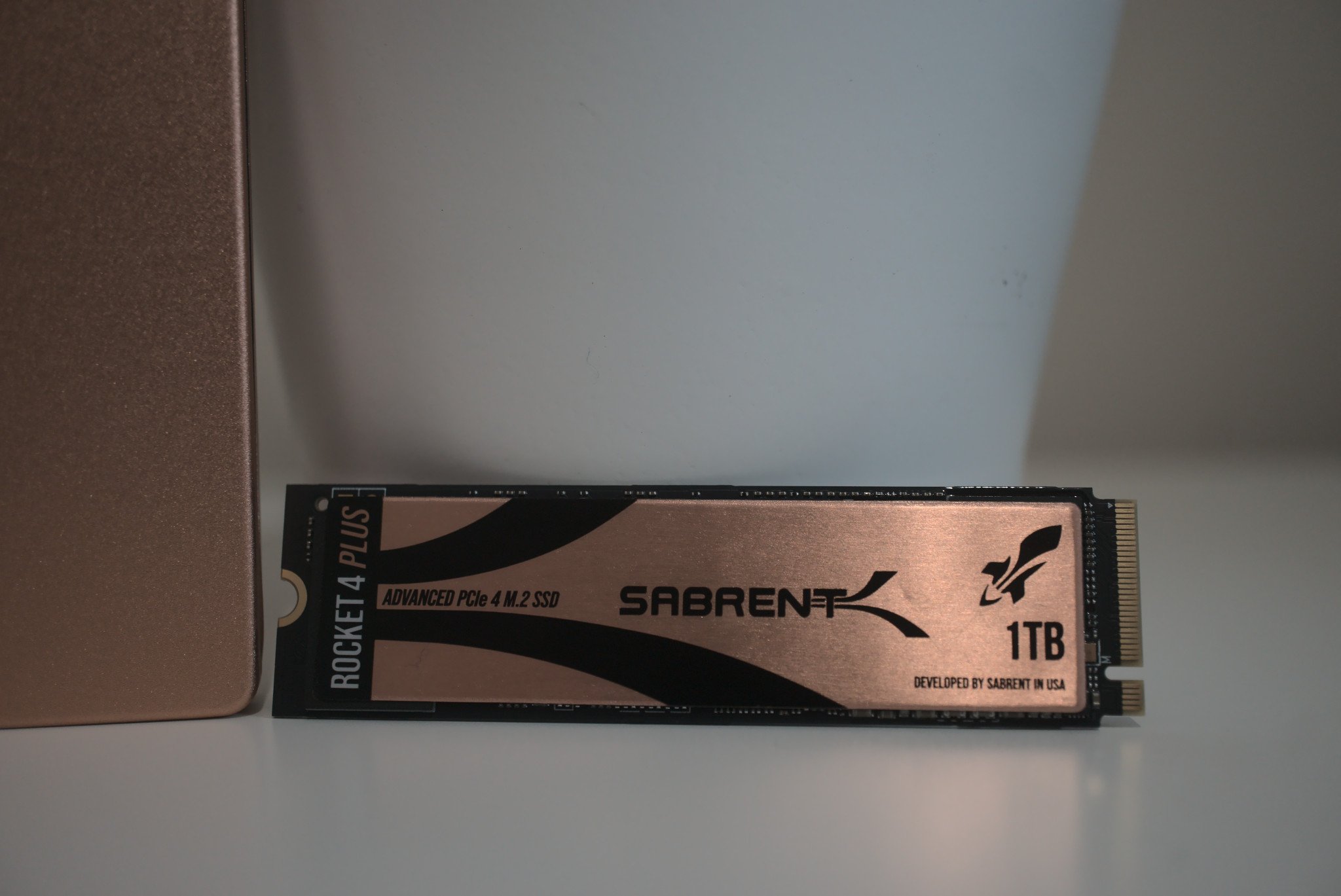Having a reliable and speedy SSD is essential in any modern PC build, especially if you plan on playing games. Mechanical drives still remain king of capacity and overall value, but in terms of performance, you simply cannot beat an SSD. PCIe M.2 drives are taking speeds to a whole new level with PCIe Gen 4.0 and Sabrent has a new Rocket 4 Plus series that is out of this world.
If you're using AMD's B550 or X570 chipset-touting motherboards you'll be able to enjoy the full speeds of the Rocket 4 Plus. Intel is catching up with 11th Gen processors that should come with PCIe 4.0 support, allowing those in the team blue camp to follow suit. We've already looked at Sabrent's Sabrent Rocket NVMe 4.0 SSD, but this is a whole different ball game.
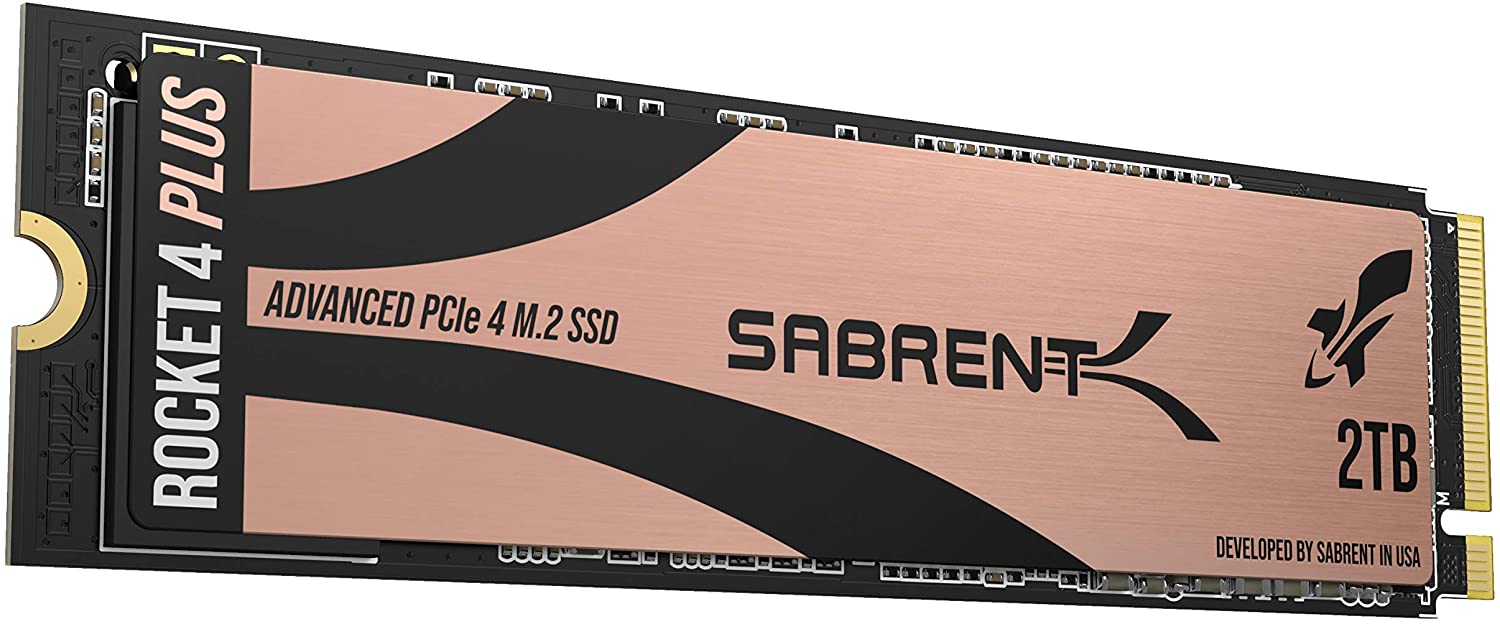
Bottom line: Sabrent makes some killer solid-state drives and the new Rocket 4 Plus is a lightning-fast PCIe 4.0 SSD. With transfer speeds of up to 7,000MB/s, this is the drive to buy for an OS or PC games.
For
- Gorgeous design
- Ridiculously fast PCIe 4.0 speeds
- Great sustained data transfer rates
- Better value than the competition
Against
- A little pricey
Sabrent Rocket 4 Plus at a glance
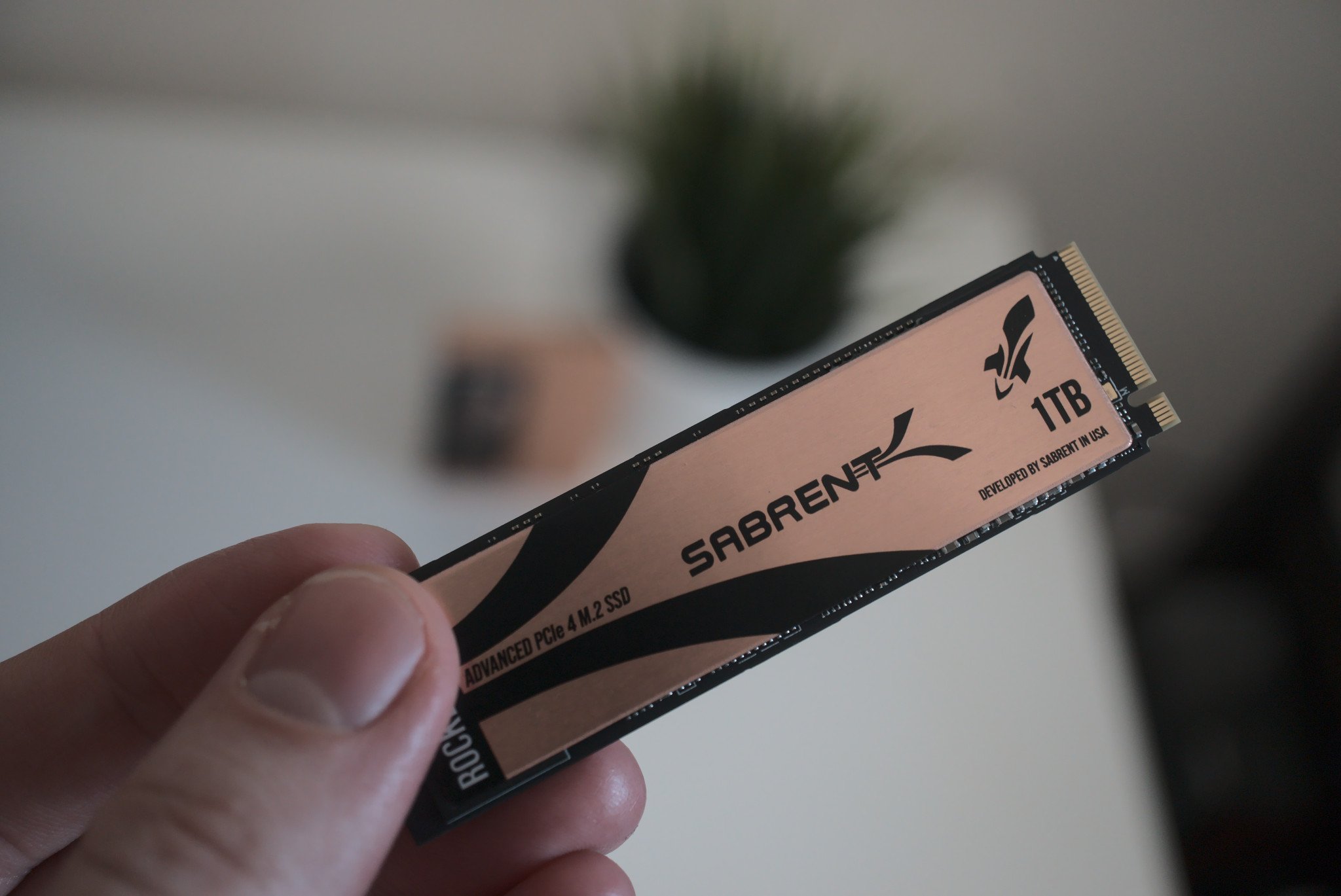
Sabrent offers the Rocket 4 Plus in 1TB, 2TB, and 4TB capacities. Prices start from $199 for 1TB, which works out at about $0.20 per GB. Thisn't not the best value compared to more affordable SSDs on the market, but when you consider the rapid transfer speeds, it's pretty good. The 2TB is $0.20 and while we don't know the price of the 4TB capacity, I'd imagine it would be around $799.
| Category | 1TB | 2TB | 4TB |
|---|---|---|---|
| Interface | PCIe Gen4 x4 | PCIe Gen4 x4 | PCIe Gen4 x4 |
| Sequential read | 7,000 MB/s | 7,100 MB/s | 7,100 MB/s |
| Sequential write | 5,300 MB/s | 6,600 MB/s | 6,600 MB/s |
| Endurance | 700 TBW | 1,400 TBW | 2,800 TBW |
| NAND | Micron TLC | Micron TLC | Micron TLC |
| Controller | Phison E18 | Phison E18 | Phison E18 |
| Warranty | 5 years | 5 years | 5 years |
| Price | $199 | $400 | $900 |
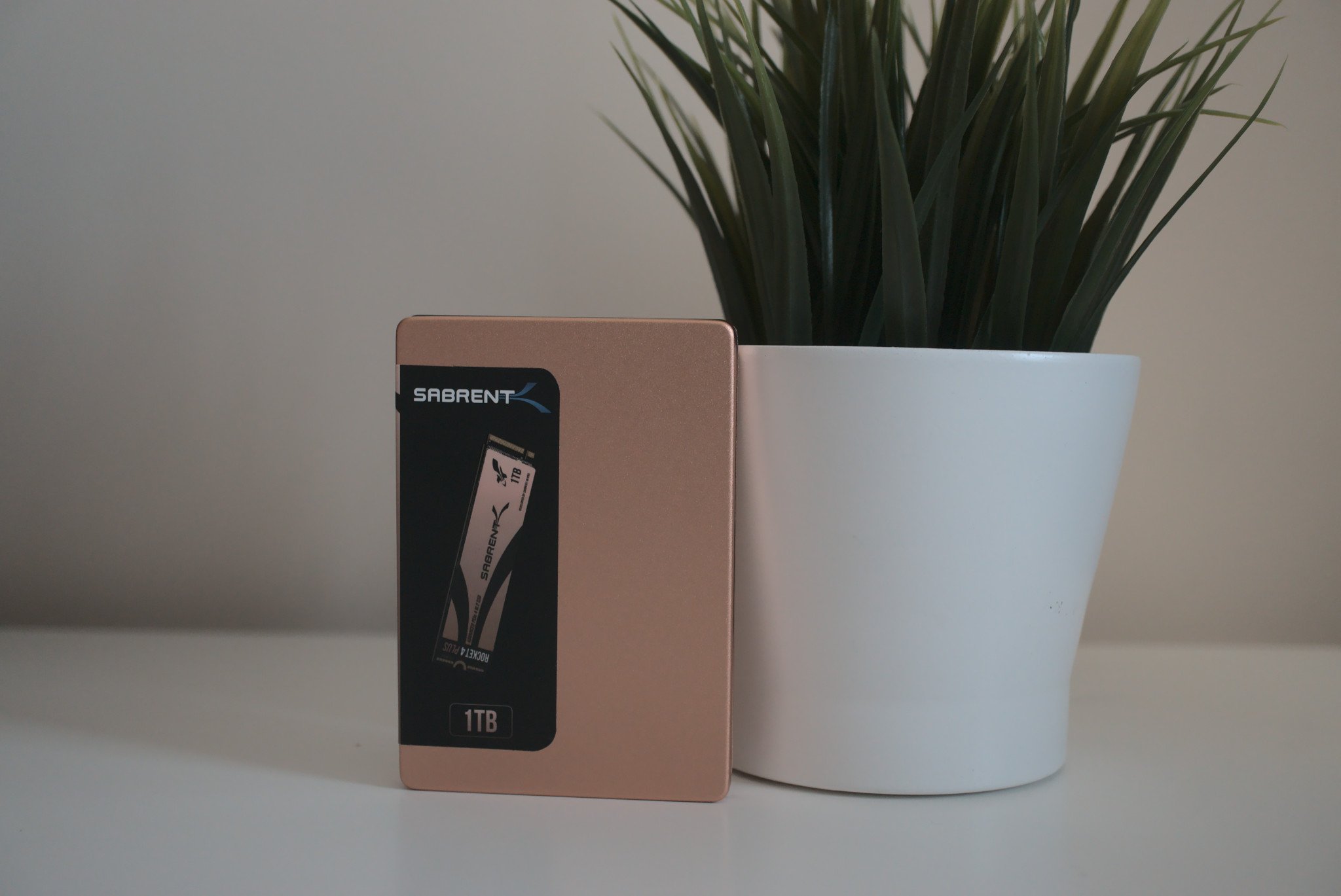
I also want to take a moment to talk about packaging, which is a little strange for an SSD review. Sabrent goes the extra mile when it comes to boxing up the Rocket 4 Plus and it oozes premium craftmanship when unboxing. The SSD is carefully enclosed inside a copper-painted metal case.
Sabrent Rocket 4 Plus is a premium-looking M.2 SSD with a striking design.
Inside, you'll find a user manual, as well as the SSD itself with a padded cover atop. It's good to see the company continue to spend the money on the packaging to not only keep its product safe in transit but also provide a good experience from the get-go.
It's difficult to appreciate the looks and design of an SSD, but the Sabrent Rocket 4 Plus is a solid-looking piece of kit. The black PCB coupled with the copper sticker for better heat dissipation makes it a premium-looking product.
As well as being PCIe 4.0 compatible, the Rocket 4 Plus comes with 350TBW per 500GB of storage. We have the 1TB and 2TB models in for review today, which have 700TBW and 1,400TBW before failure. While it may be considered a rather large downpayment for storage, you'll be able to use these drives for many years to come.
Sabrent Rocket 4 Plus performance
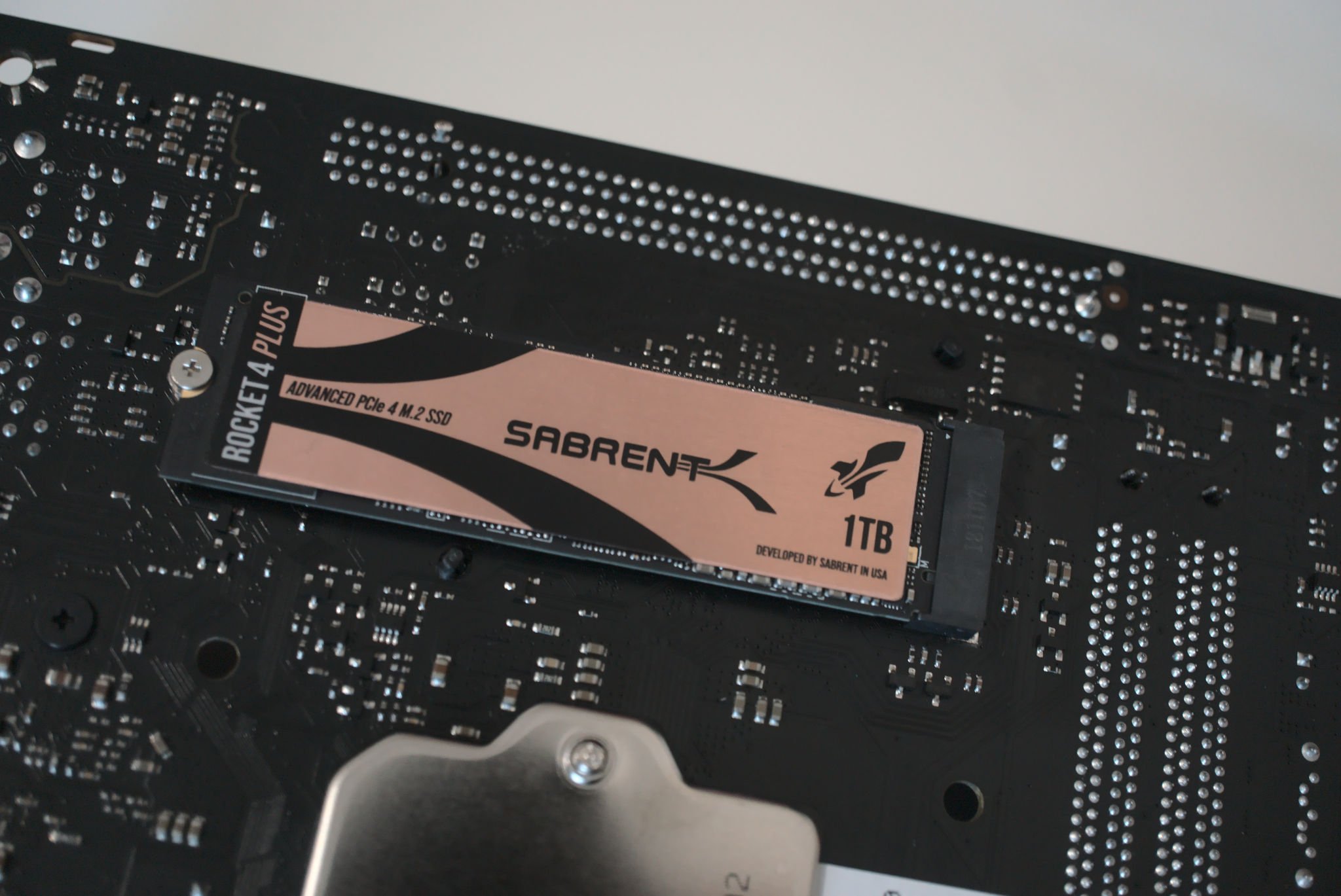
So, PCIe 4.0. Is the performance boost over Gen 3.0 worth shouting about? Absolutely, and the new Phison E18 controller takes the rated speeds we've seen so far and bumps them to a whopping 7,000MB/s. To put that into perspective, that's around 7GB per second. Big file problems just became a thing of the past.
This PCIe 4.0 SSD can easily hit 7,000MB/s and it's about as fast as you'd expect.
Firing up CrystalDiskMark, we can immediately see the claimed performance figures are essentially spot on. Compared to the Sabrent Rocket PCIe 4.0 drive, we're looking at a 3,000MB/s speed increase, which is crazy good for big files and load times. Even if you opt for the 1TB capacity, you'll still see 7.000MB/s for read, but moving up to 2TB will see a notable improvement in write speeds.
Synthetic benchmarks confirmed the numbers supplied by Sabrent, which isn't surprising as the company is pretty good at hitting what's marketed with its family of SSDs. Compared to the Sabrent Rocket (also a PCIe 4.0 SSD), and Samsung 980 EVO Pro, the Rocket 4 Plus in 1TB or 2TB capacities is quite simply lightning-fast.
CrystalDiskMark benchmark results. Higher is better.
Through normal use, firing up games, installing and launching software like GIMP and Premiere Pro saw no issues at all. Transferring large files was also painless with reliable speeds. While a little pointless in the grand scheme of things, I did install both Windows and Linux on the 1TB and 2TB drives and the boot times were about as ridiculously fast as you'd imagine from PCIe 4.0 SSDs.
I wouldn't want to keep this SSD covered in a system build since it looks so good, but luckily you won't suffer heavy thermal performance penalties if you don't use a heatsink (which usually comes with higher-end motherboards these days). The use of a copper sticker not only looks good but functions as a heat dissipater to help prevent the drive from throttling under load.
Overall, the performance is right up there with the very best we'll get this generation.
Should you buy the Sabrent Rocket 4 Plus?
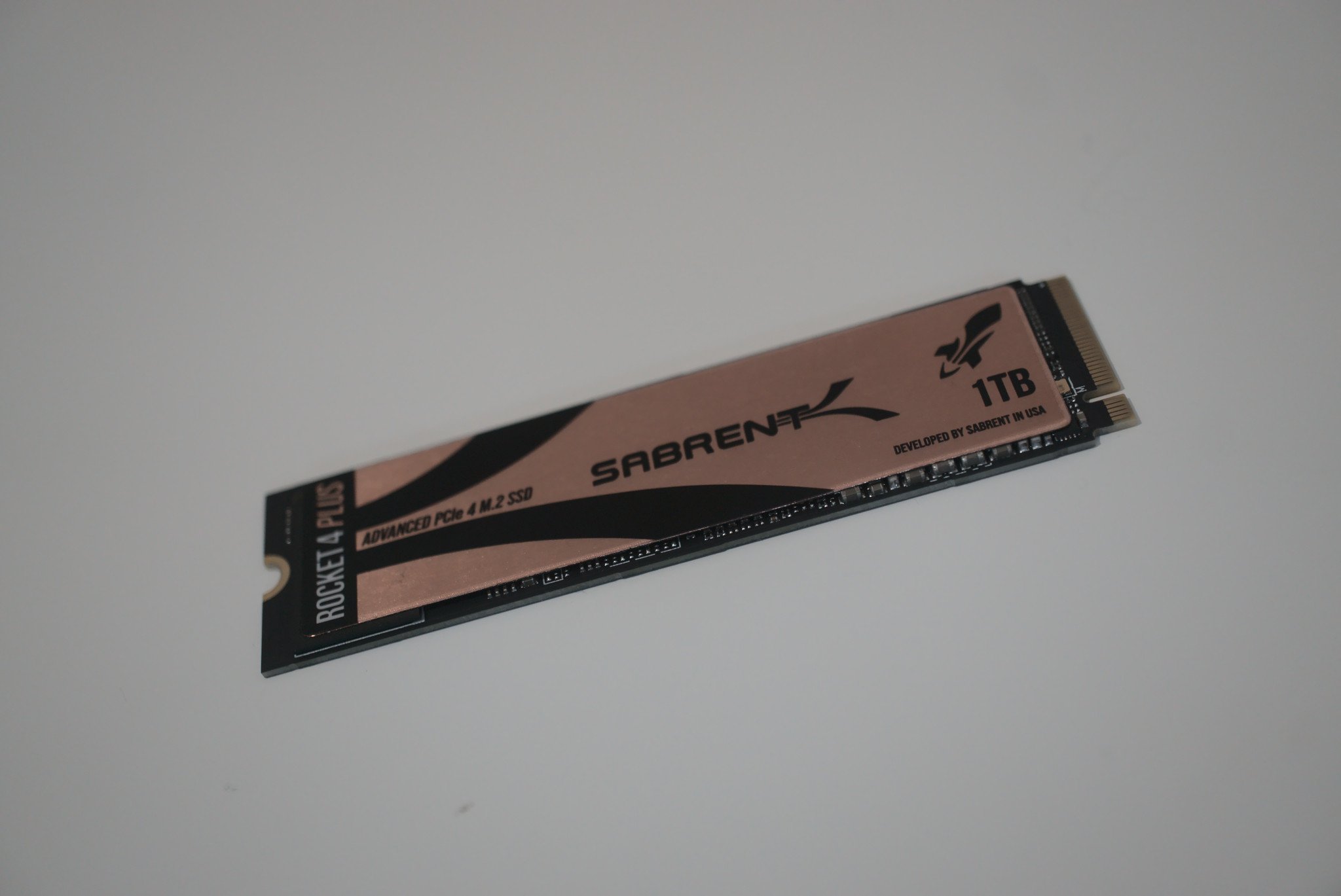
Who it's for
- Those who want exceptional performance
- Those who have a PCIe 4.0 supporting motherboard and CPU
- Those who need an M.2 drive to install their OS or games on
Who it isn't for
- Those who don't have a PCIe 4.0 motherboard or CPU
- Those who don't need the fastest SSD speeds
- Those who do not feel comfortable spending so much
If you need a new M.2 NVMe SSD and want the very best with support for PCIe 4.0, this is the drive for you. The secret sauce in Sabrent's recipe is the new Phison E18 controller, which is an absolute monster. Hitting speeds of 7,000MB/s makes short work of transferring even the beefiest of files.
If you have a PCIe 3.0 motherboard and/or CPU and don't plan on upgrading anytime soon, you may be better off with another, more affordable SSD. Likewise, if you don't see yourself utilizing the speed increase from 4,000MB/s to 7,000MB/s, even other Sabrent offerings may be a better deal.
But as it stands right now, this is the best SSD you can buy. It also pretty much makes the existing Rocket PCIe 4.0 drive from Sabrent irrelevant. The the $30 extra for the 2TB Plus is well worth the more than double performance in both read and write. Moving from slower SATA SSDs or mechanical drives will showcase a huge improvement in PC performance.

Rich Edmonds was formerly a Senior Editor of PC hardware at Windows Central, covering everything related to PC components and NAS. He's been involved in technology for more than a decade and knows a thing or two about the magic inside a PC chassis. You can follow him on Twitter at @RichEdmonds.
